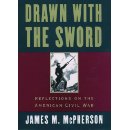 Past Articles from 2004 until last year. Many important lessons can be found in each of these articles.
Past Articles from 2004 until last year. Many important lessons can be found in each of these articles.
 Back in 1976 Robert Lamm wrote a song for the Chicago XI album titled Vote for Me. The Lyrics are prescient, as he promises to “Cut your tax in half, make the Russians laugh, feed the hungry people everywhere…..” and make cars that “run on anything except gasoline.” On tax policy, domestic policy, energy policy, and foreign policy he seems to be in line with the goals of the major party candidates 32 years ahead of time. Then again, we could probably apply the same lyrics 30 years from now again. The same promises are made. The same challenges remain.
Back in 1976 Robert Lamm wrote a song for the Chicago XI album titled Vote for Me. The Lyrics are prescient, as he promises to “Cut your tax in half, make the Russians laugh, feed the hungry people everywhere…..” and make cars that “run on anything except gasoline.” On tax policy, domestic policy, energy policy, and foreign policy he seems to be in line with the goals of the major party candidates 32 years ahead of time. Then again, we could probably apply the same lyrics 30 years from now again. The same promises are made. The same challenges remain.
 I was going through one of the boxes of books that Mr. Sullivan is kind enough to bring by now and then and found a 1942 American Red Cross Home Nursing Manual. It was, of course, produced when we were engaged in total war against fascism, and were called upon to make significant sacrifices at home. The book, compiled by Lona M. Lott (R.N., B.S.), is a bibliophile’s equivalent of a Swiss Army Knife. In 390 pages (not counting appendices and an index), it contains information on, but not confined to: planting a garden, applying a tourniquet, building a potty chair, fighting mosquitoes, improvising a home shower, making a quarantine room in your house when a family member gets TB, recognizing when you or a family member needs psychiatric care, pruning fruit trees, preventing fallen arches, improvising home-made tooth-paste and shampoos, disinfecting the clothing of someone exposed to typhoid, folding clothes, making a bed with hospital corners, choosing a mattress, disciplining children, and properly applying cold and hot compresses.
I was going through one of the boxes of books that Mr. Sullivan is kind enough to bring by now and then and found a 1942 American Red Cross Home Nursing Manual. It was, of course, produced when we were engaged in total war against fascism, and were called upon to make significant sacrifices at home. The book, compiled by Lona M. Lott (R.N., B.S.), is a bibliophile’s equivalent of a Swiss Army Knife. In 390 pages (not counting appendices and an index), it contains information on, but not confined to: planting a garden, applying a tourniquet, building a potty chair, fighting mosquitoes, improvising a home shower, making a quarantine room in your house when a family member gets TB, recognizing when you or a family member needs psychiatric care, pruning fruit trees, preventing fallen arches, improvising home-made tooth-paste and shampoos, disinfecting the clothing of someone exposed to typhoid, folding clothes, making a bed with hospital corners, choosing a mattress, disciplining children, and properly applying cold and hot compresses.
 “I have great comfort from this fellow; methinks he hath no drowning mark upon him; his complexion is perfect gallows. Stand fast, good fate, to his hanging! Make the rope of his destiny our cable, for our own doth little advantage! If he be not born to be hanged, our case is miserable.” The Tempest, Act 1:Scene 1 – Shakespeare
“I have great comfort from this fellow; methinks he hath no drowning mark upon him; his complexion is perfect gallows. Stand fast, good fate, to his hanging! Make the rope of his destiny our cable, for our own doth little advantage! If he be not born to be hanged, our case is miserable.” The Tempest, Act 1:Scene 1 – Shakespeare
William Shakespeare’s last complete play, The Tempest, begins with a violent storm and a shipwreck. All the passengers on the ship survive the wreck the tempest has wrought. In the quote above, Gonzalo, the good advisor of the Duke of Milan, takes heart in the midst of the storm because of a sign he thinks he sees. The Boatswain, a crude and blasphemous man, seems marked for hanging. If the boatswain will one day hang, then he will certainly not drown in this storm – thus the prayer “Make the rope of his destiny our cable.” If the boatswain survives by being marked for a different fate, then they may all survive.
![]() Four decades ago Jack Valenti implemented, on behalf of the Motion Picture Industry, a ratings code for the movies. Three decades before that the Hays office tried to self-police motion pictures, censoring inappropriate content (if you doubt the need of such measures take a look at the skinny-dipping scene in Tarzan and His Mate 1934 – then again, don’t look – it’s a skinny-dipping scene). Both the attempt to regulate content by the Hays Office, and the attempt to inform by the ratings system proved to be qualified failures.
Four decades ago Jack Valenti implemented, on behalf of the Motion Picture Industry, a ratings code for the movies. Three decades before that the Hays office tried to self-police motion pictures, censoring inappropriate content (if you doubt the need of such measures take a look at the skinny-dipping scene in Tarzan and His Mate 1934 – then again, don’t look – it’s a skinny-dipping scene). Both the attempt to regulate content by the Hays Office, and the attempt to inform by the ratings system proved to be qualified failures.
 I just finished reading two of Pulitzer-Prize winning historian, James McPherson’s books on the Civil War (McPherson was approved by David Button, but I know a historian satisfactory to a Virginian may not be so to someone from the Deep South). The books, Drawn with the Sword, and Abraham Lincoln and the Second American Revolution, are both collections of essays about the forces that shaped, and the implications produced by the Civil War.
I just finished reading two of Pulitzer-Prize winning historian, James McPherson’s books on the Civil War (McPherson was approved by David Button, but I know a historian satisfactory to a Virginian may not be so to someone from the Deep South). The books, Drawn with the Sword, and Abraham Lincoln and the Second American Revolution, are both collections of essays about the forces that shaped, and the implications produced by the Civil War.

